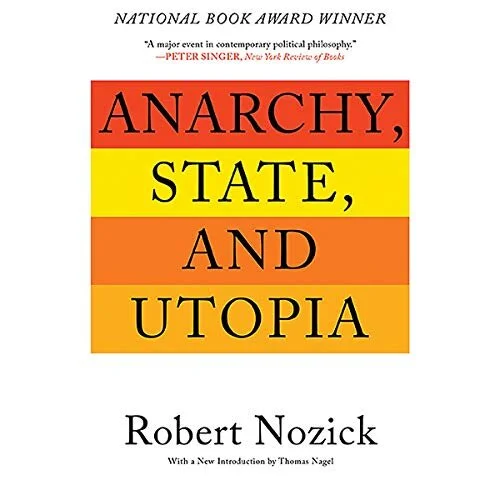The Psychology of Time Travel reveals the limits of power
It might seem odd to compare a fictional elderly woman time traveler to former US President Lyndon B. Johnson, but that is exactly the person I thought of whilst reading Kate Mascarenhas’s novel The Psychology of Time Travel.
Mascarenhas’s novel is a character driven science fiction story about the effect that time travel has a on a person’s mind. On another level it's about the effect that power has on people. Specifically, the power of knowing the future.
Absolute power corrupts absolutely
The novel focuses on four women who invent time travel in the 1960s. Three of them go onto found a body called The Conclave, which regulates the use of time travel. The Conclave’s position beyond the limits of linear time, means it’s beyond the reach of any government or corporation. One of the three scientists, named Margaret, becomes the leader of the Conclave and thus has absolute dominion over the world of time travel.
The Psychology of Time Travel’s exploration of what absolute power does to a person reminded me of David Runciman’s book Where Power Stops: The Making and Unmaking of Presidents and Prime Ministers, which is a study of the limits of power in modern democracy. Runciman’s book explores the personality of political leaders and how this impacted their time leading their country. His argument is that the personality of the politician reveals the limits of what that kind of person can do with political power.
Power corrupts but power also reveals
Runciman based his argument on one of the greatest political biographies of all time, Robert Caro’s The Years of Lyndon Johnson. This famously detailed biography (Caro has spent more time writing his book than Johnson himself was alive) has a simple premise at its core: power corrupts but power also reveals. Caro argues that the more power someone has the more we see who they are.
Caro claims that we saw the real LBJ when he got to be President. Johnson was corrupt, a vote cheat, a bully and various other nasty things, but when he became the president the office’s power revealed his caring side as he passed the Civil Rights legislation that his predecessor, John F Kennedy, was unable to pass.
Runciman's book argues the opposite: that power doesn't show the true nature of the politician, the politician shows the true nature of power, as it reveals what’s possible to achieve with that politician’s personality. Runciman states that the presidency didn’t show us something about LBJ, LBJ shows us something about the presidency.
Runciman on LBJ
Runciman argues that Johnson’s huge liberal accomplishments (not just Civil Rights legislation but also a programme of social reforms called The Great Society aimed at elimination of poverty and racial injustice) were not him revealing his true, caring self when he got to the Oval Office, it was an aspect of the person he always was.
Johnson was someone who did whatever it took to win and passing Civil Rights legislation and trying to eliminate poverty was how he won once he was president. It was how he beat his political opponents, but mainly it was how he beat the ghost of JFK.
Johnson had a lingering concern that he wasn’t worthy of being president and that he had ended up in the role because of unfortunate circumstances. Johnson beat these by passing the reforms that Kennedy was unable to get through Congress. Runciman writes that LBJ's caring side was second to getting power, which was his primary motivator through his whole life.
The personality of a time traveler
Runciman’s ideas apply to Mascarenhas’s novel. Margaret becomes supreme leader of The Conclave after it is founded. Throughout the novel we see how power affects her psychologically. She becomes more authoritarian and more callus. She sets up harsh hazing rituals to condition new time travelers to be ambivalent about death. Eventually she forces other members of The Conclave to play a version of Russian Roulette involving time traveling bullets.
It could be argued that the power that Margaret gains as leader of The Conclave reveals her personality. However, I think that Runciman’s ideas are more accurate. Margaret’s bullying and megalomania were present in her from the start. This is shown early on in the novel when Margaret refuses to let one of her colleagues, Bea, with whom she discovered time travel, into The Conclave because Bea’s mental health problems embarrasses Margaret during a TV interview.
The limits of Margaret’s power
Margaret’s leadership of The Conclave shows the limits of the power of that office. Her power is great, she knows when her subordinates will die and how, but it is limited. She cannot prevent her own death. She cannot change the past or the future, even if she knows what will happen.
Despite Margaret’s authoritarianism and knowledge of the future, she is unable to use the power of her office to stop people betraying her, which ultimately leads to her death. This shows the limits of power for a leader of The Conclave with Margaret’s authoritarian psychology.
The limits of power in science fiction
The novel The Psychology of Time Travel, and especially the character of Margaret, show the argument that Runciman makes in his book on the limits of power. It is not that a leader’s personality is revealed when they achieve high office, their personality can be seen from the start of their career as can be seen from the character of Margaret in chapter one of Mascarenhas’s novel. The nature of a leader does show us something about power and what can be achieved with that personality.
Fortunately, no politician is as powerful as Margaret; being beyond the reach of all other authority and with knowledge of the future. This means to explore the dynamics of Runciman’s ideas about the limits of power for such a leader, we need to turn to works of fiction.










